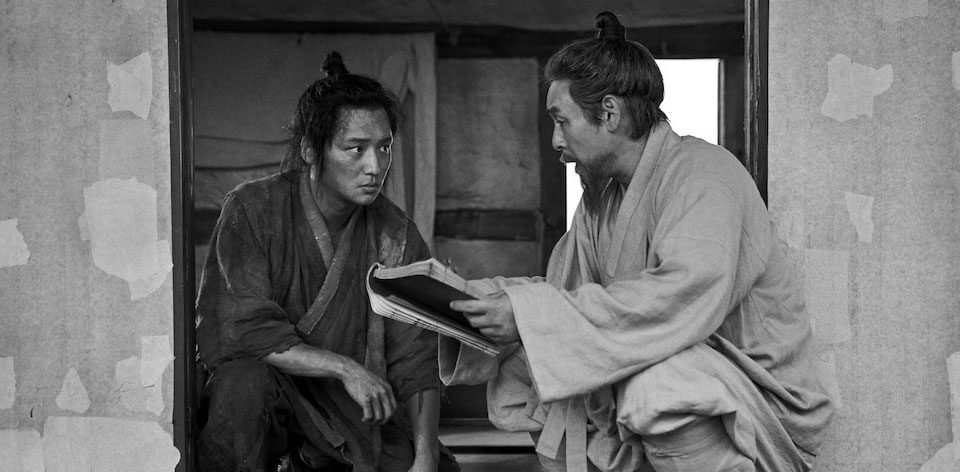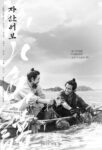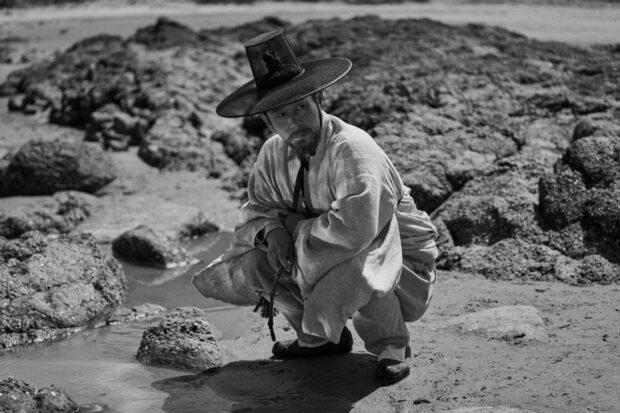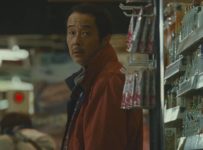Jeong Yak-jeon, who lived between 1758 and 1816, is acknowledged in Korea as a scholar of some renown. While not reaching the culture significance of his UNESCO recognised brother Jeong Yak-yong, his work and story fascinated director Lee Joon-ik. Blending fact and fiction, he conveys something here that is part biography and also an exploration of two opposing philosophical points of view.
THE BOOK OF FISH (자산어보) takes place during Jeong’s exile to Heuksando Island during the Catholic Persecution of 1801 under King Sunjo of Joseon’s reign. Despite Jeong (played by Sol Kyung-Gu) being branded a traitor by the local magistrate, he soon finds a home with the kindly Gageo-daek (Lee Jung-Eun).
Standing in contrast to the highly educated Jeong is Chang-dae (Byun Yo-han), an incredibly intelligent fisherman who is only held back by his inability to afford the required texts. Jeong’s initial offers to mentor him are rejected due to his ‘evil western teachings.’ Yet with Chang-dae’s keen interest in Neo-Confucianism, and Jeong’s growing fascination with the island’s marine life, the stage is set for a meeting of minds.
Although the character of Chang-dae is mentioned in the scholar’s writings, his personality is entirely a creation of director Lee and writer Kim Se-Kyum (Sunset In My Hometown). It’s a fascinating way to demonstrate Jeong’s connection with the land. Jeong wrote volumes during his period of exile, and the titular Jasaneobo — a treatise on marine life that identified over 200 varieties of creatures around the island — is argued to be the most fascinating. While the book itself is real, his semi-fictionalised relationship with Chang-dae serves the important story purpose of connecting Jeong with both the islanders and modern film audiences.
The two central performances carry this, with long stretches of the film effectively acting as a two-hander between the versatile star Sol Kyung-Gu and the much younger Byun Yo-Han. The latter’s journey to the mainland, and his discovery that nobility isn’t all that noble, is both heartbreaking and poignant. Yet the supporting cast is also charming and effective, especially Lee Jung-Eun’s homespun and frank portrayal of a very modern woman transplanted into 19th century Korea.
Equal amounts of praise are to be heaped on cinematographer Lee Ui-tae who casts the island in gorgeous monochromatic hues. From the endless skylines to the high contrast faces, Lee captures this story as if it’s somehow shot half a century ago. They allow themselves one splash of colour during a pivotal scene during the final act, and the comparison only highlights how consistently great the photography has been at sucking us into this world.
With THE BOOK OF FISH, South Korean cinema continues its celebration of their culture history, and this film will no doubt have even more impact on home soil. Yet while there are some specific culture touchstones here, they are not really a barrier to entry. Lee’s film is a beautiful and engaging portrait of a human, and a reminder of the connection that we all share through the common language of nature.
2021 | South Korea | DIRECTOR: Lee Joon-ik | WRITER: Kim Se-Kyum | CAST: Sol Kyung-gu, Byun Yo-han, Lee Jung-eun, Min Do-hee | DISTRIBUTOR: NYAFF 2021 | RUNNING TIME: 126 minutes | RELEASE DATE: 6-22 August 2021 (NYAFF 2021)







